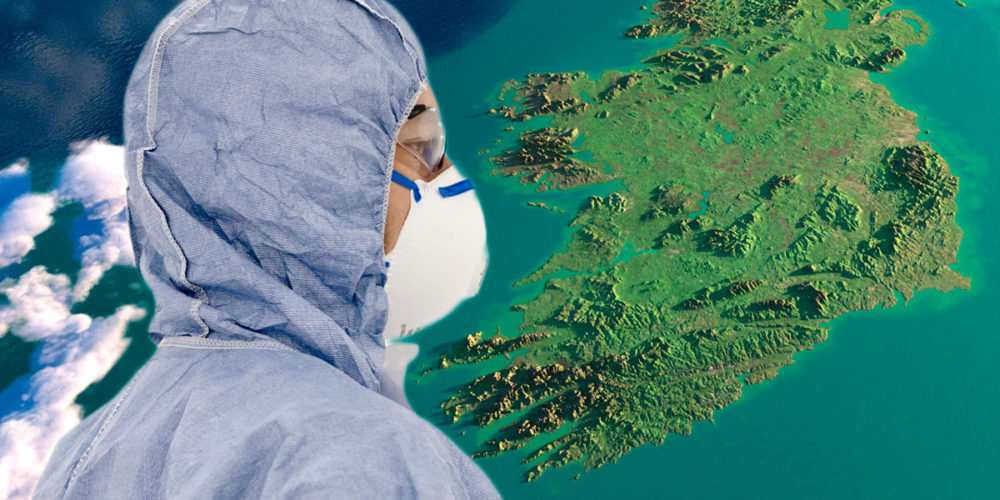People of Ireland, all is well! Your Taoiseach loves you.
Wasn’t this what he told us in his St Patrick’s Day address to the nation (that part of it living south of the border)? His concerned yet confident demeanour was so reassuring and inspiring that the Blueshirts are showing a degree of confidence not seen since long before the general election. Alongside the other harm the coronavirus will do it has also given Fine Gael a lift. A campaign is now under way to keep Leo Varadkar and his cronies in situ. Even the electorally rejected Regina Doherty has been resurrected to maintain continuity with the old regime.
A week is a long time in politics, Harold Wilson said; and the attempted rehabilitation of Varadkar and his Government colleagues has certainly borne that out. If we didn’t know better we could be misled into overlooking the fact that these are the same people who created a homelessness and housing crisis, caused half a million people to be left waiting for a hospital appointment, made the cost of child care unaffordable, and inflicted cruel austerity on working communities.
Of course we know they haven’t changed. These high priests of capitalism are merely practising what their peers have done for centuries. They are carrying out whatever steps they consider necessary to preserve their position of privilege and power.
Undoubtedly the Dublin government, even with its dubious mandate, has performed better than the sociopaths in Downing Street, not to mention the hapless, impotent Castlereagh Parish Council, otherwise known as the Northern Ireland Assembly. In reality, it wouldn’t have been difficult to better either lot.
Though warned by the WHO in mid-January of an imminent pandemic, the British government stalled. Boris Johnson and his adviser Dominic Cummings were concerned that large-scale state intervention during a health crisis might encourage too many working people to reflect on their circumstances. Surely something similar could be done to address other difficulties, such as unemployment, poverty, and homelessness?
To avoid this threat to capital they were willing to risk lives. However, panic overtook them when the world-renowned British epidemiologist Neil Ferguson calculated a mortality rate of more than a quarter of million if they persisted with their “herd immunity” policy.* With possible casualty numbers that high, the stability of the state would be endangered, and hence the policy reversal.
A more vulgar and traditional calculation featured in Stormont’s response to the crisis. Backed into a corner by Michelle O’Neill’s overnight U-turn in relation to school closures, Arlene Foster responded by stubbornly rejecting any option other than mirroring the madcap plans of Johnson and Cummings.
Whatever one’s view on the constitutional question, Ireland is a single island. The need to deal with a contagious, rapidly spreading virus on an all-Ireland basis is clearly a matter of basic common sense. Coming so closely on the heels of the report into the RHI fiasco, Stormont’s inept and disjointed handling of the coronavirus crisis only further undermines the viability of a six-county political entity toadying to an indifferent British ruling class.
In the global context, this crisis is not only creating a frightening threat to human health: it is also posing fundamental questions and indeed dilemmas for free-market capitalism and its political system. To cope with the emergency it has become obvious that it is necessary to employ the resources of the capitalist state on a scale and in ways unimaginable to neo-liberals even a few short weeks ago. With unemployment rising rapidly, incomes are being cut dramatically, and consequently people’s ability to pay for day-to-day needs is diminishing.
While the Irish government has taken steps to address this, it will be forced to go even further as the crisis intensifies. Pressure will increase to make provision for people meeting rent or mortgage payments as well as covering food bills, utility bills, and other essentials, such as clothing and sanitary or hygiene goods. This will pose a serious challenge for a neo-liberal free-market economic system. How will it all be paid for, and by whom? Their preferred answer—another, intensified bout of austerity—would surely be resisted by the people.
The ruling class everywhere is worried, and not necessarily about virus contagion. What lessons will be drawn from this situation by the wider population? What if workers demand a similar level of state intervention across the board when the crisis ends?
It is no accident, therefore, that one of the first measures taken by the Varadkar government was to legislate for an extension of policing powers and to increase Garda numbers on the streets, even drawing on recruits from the Training Depot. Fine Gael may have discovered a polished PR skill but hasn’t departed far from its roots.
The social system provided by free-market capitalism has proved itself incapable of dealing with covid-19. This is a massive system failure that cannot easily be disguised. Think for a moment about a happening in the United States. Andrew Cuomo, governor of New York State (and definitely not a socialist), has been calling on the federal government to nationalise the production of personal protection equipment. Not quite revolution but an indication, nevertheless, of changing conditions.
Think also about a comment by the political activist Paul O’Connell. He recently wrote that if the broad left does not soon articulate a vision of how we respond to covid-19 and shape the post-crisis landscape, the novel and radical interventions being introduced now will simply serve to consolidate existing power relations: everything changing so that nothing changes.
This is the challenge. Without question, we must concentrate on addressing the immediate threat posed by covid-19. Nevertheless it is crucial that we look beyond the immediate and consider this crisis not opportunistically but as something demanding a new beginning, with different structures.
The political system built upon capitalist free-market economics has been forced to adopt interventionist measures in order to save itself. In time this will succeed in controlling the pandemic. Thereafter, though, we have to emphasise this fact and reinforce the message that other, long-running problems, in housing, health, and poverty, can also be successfully addressed.
Let there be no misunderstanding, though: this will not be brought about through the capitalist state system that we have in Ireland, north and south, today. Implementing such a programme for working people requires a structured and calculated socialist people’s programme managed from within a socialist state, the Workers’ Republic.
*See Pilita Clark, “A virus modeller sounds the alarm,” Financial Times, 21 March 2020.






